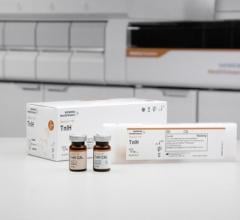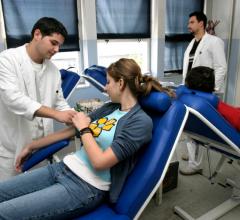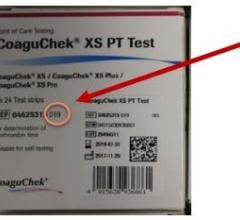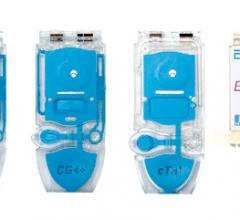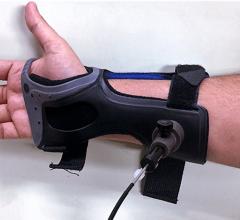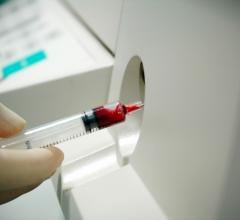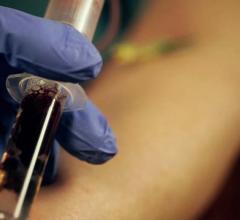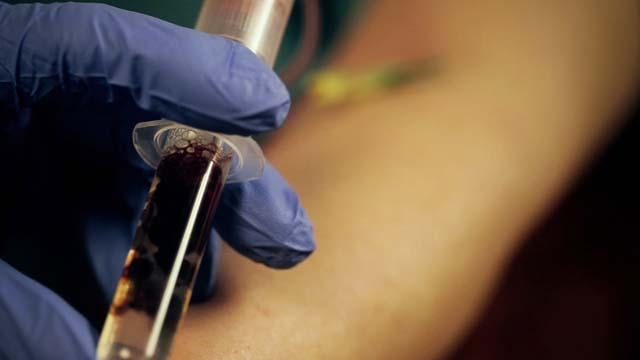
November 5, 2019 — The U.S. Food and Drug Administration (FDA) is updating its November 2017 safety communication to remind the public, healthcare providers that biotin, often found in dietary supplements, can significantly interfere with certain lab tests and cause incorrect results that may go undetected. The agency said biotin in patient blood samples can cause falsely high or falsely low results, depending on the type of test. The FDA is particularly concerned about biotin interference causing a falsely low result for troponin, which is a clinically important biomarker to aid in the diagnosis of heart attacks.
The FDA said it continues to receive adverse events reports indicating biotin interference caused falsely low troponin results. The agency wants to make the public and healthcare providers aware about biotin interference with lab tests so that patients, physicians and laboratories can work together to help prevent adverse events.
Since the FDA's safety communication on this topic in 2017, some lab test developers have been successful at mitigating the biotin interference of their assays, but others have not yet addressed it. The FDA said it remains concerned about troponin laboratory tests that have not addressed the risk of biotin interference. The agency has posted a webpage on Biotin Interference with Troponin Lab Tests - Assays Subject to Biotin Interference to notify the public about troponin assays where the risk of biotin interference has not yet been addressed.
"I have seen how biotin interference can impact multiple endocrine test results," said Saleh Aldasouqi, M.D., FACE, ECNU, professor of medicine and chief of endocrinology, Michigan State University. "In the process of learning more about biotin lab interferences, I have also learned that an important non-endocrine test affected by biotin is Troponin, a principal diagnostic test for myocardial infarction."
He has among the physicians who have been raising awareness about this biotin interaction issue among physicians, nurses, patients and colleagues in clinical labs. He has shared clinical cases at annual meetings of national health associations, and has been working with companies, such as Abbott, to help raise awareness on the issue nationally.
"Awareness about biotin interference with labs is quite low in the society among patients, and is also not satisfactory among healthcare providers," Aldasouqi explained. "In fact, Abbott recently conducted a survey that found that 17 percent of respondents in the U.S. consumed biotin. The same survey found that that 35 percent of healthcare providers in the U.S. were somewhat or very familiar. Therefore, not only is it important to educate patients to engage in open dialogue with their doctors about vitamins that are a part of their everyday routine, but to increase awareness among physicians regarding inference and encouraging them to communicate with their laboratory partners on the tests being used."
In the emergency department (ED), troponin is a primary test used to determine if patients presenting with chest pain are having a heart attack. He said it is important for ED physicians to mitigate any potential issues biotin might cause by being vigilant
"Asking patients what supplements they use should be a regular part of any exam, and physicians should report to their laboratory partners when patients are using biotin," Aldasouqi said. "It’s also important to consider all test results and symptoms. All ED physicians should understand whether their lab uses cardiac troponin tests impacted by biotin interference. Results from electrocardiogram (ECG), echocardiogram, or cardiac catheterization, in combination with symptoms and troponin test results, are important tools in diagnosis. If a lab test result doesn’t match symptoms or other test results, consider biotin as a potential concern."
He also urges physicians to report any cases where biotin has caused a false test result so the FDA and physicians can better understand the impact it is having.
FDA Recommendations for Consumers On Taking Biotin Supplements
Consumers are urged to talk with their doctor if they are currently taking biotin (also called vitamin B7) or are considering adding biotin, or a supplement containing biotin, to their diet.
Consumers should know that biotin is found in multivitamins, including prenatal multivitamins, biotin supplements and supplements for hair, skin and nail growth in levels that may interfere with laboratory tests. However, The FDA said the amount of biotin can vary significantly among different products. Consider that the daily recommended allowance for biotin is 0.03 mg and that amount does not typically cause interference in lab tests.
The FDA said some supplements, particularly those labeled to benefit hair, skin and nails, may have high levels of biotin, which may not always be clear from the name of the supplement. FDA is aware of many supplements containing 20 mg of biotin, and some containing up to 100 mg per pill, with recommendations to take multiple pills per day. Supplements containing high biotin levels may interfere with affected lab tests, the agency explained.
Sufficient information is not available to know if stopping biotin consumption for any number of hours prior to testing will prevent incorrect test results. If a consumer had a lab test done and they are concerned about the results, they should speak to your healthcare provider about the possibility of biotin interference.
For more information, see the NIH Biotin Fact Sheet for Consumers.
Recommendations for Healthcare Providers Regarding Biotin
The FDA suggested providers talk to their patients about any biotin supplements or multivitamin supplements they are taking that may contain biotin, including supplements marketed for hair, skin and nail growth, and prenatal multivitamins.
Be aware that many lab tests, including but not limited to cardiovascular diagnostic tests and hormone tests, that use biotin technology are potentially affected and incorrect test results may be generated if there is biotin in the patient's specimen. Communicate to the lab conducting the testing if your patient is taking biotin.
If a lab test result does not match the clinical presentation of a patient, consider biotin interference as a possible source of error.
Provers should report to the lab test manufacturer and the FDA if they are aware of a patient experiencing an adverse event following potentially incorrect laboratory test results due to biotin interference.
Recommendations for Lab Personnel Regarding Biotin
If lab personnel use assays with biotin technology, be aware that it is difficult to identify samples that contain biotin. So, it is important to communicate with healthcare providers and patients to prevent incorrect test results.
If collecting samples in the lab, ask whether the patient is taking biotin or a biotin containing supplement. Lab staff also should educate healthcare providers about biotin interference with certain lab tests used in your lab, the FDA said.
Consider that the daily recommended allowance for biotin is 0.03 mg for adults and these biotin levels do not typically cause significant interference.
Be aware that specimens collected from patients taking high levels of biotin may contain more than 100 ng/mL biotin. Concentrations of biotin up to 1,200 ng/mL may be present in specimens collected from patients taking up to 300 mg per day.
Currently available data is insufficient to support recommendations for safe testing using affected tests in patients taking high levels of biotin, including about the length of time for biotin clearance from the blood.
Communicate with the lab test manufacturer if you have questions about biotin interference.
The FDA recently cleared Abbott's new Architect Stat High Sensitivity Troponin-I blood test, which the company said is designed to not be affected by biotin interference. Read more in the article FDA Clears Abbott's High Sensitivity Troponin-I Blood Test.
Be aware of certain troponin assays where the risk of biotin interference has not yet been addressed. See Biotin Interference with Troponin Lab Tests - Assays Subject to Biotin Interference.
Recommendations for Lab Test Manufacturers and Developers Regarding Biotin
For vendors that have assay using biotin technology, they should contact the FDA to discuss biotin interference. Vendors are also urged to investigate interference from biotin (up to at least 1,200 ng/mL biotin) in their assays that use biotin technology. They should determine the lowest concentration of biotin that may cause clinically significant interference with their test.
The FDA also said vendors should communicate with their customers if they may be unaware that the test uses biotin technology and how it may be affected.
Reporting Problems to the FDA
If you suspect or experience a problem with a laboratory test while taking biotin, the FDA encourages you to report the problem through the MedWatch Voluntary Reporting Form.
Healthcare personnel employed by facilities that are subject to the FDA's user facility reporting requirements should follow the reporting procedures established by their facilities.
If you have questions, e-mail the Division of Industry Communication and Education (DICE) at [email protected] or call 800-638-2041 or 301-796-7100.
Related Cardiac Troponin Testing Content:
VIDEO: Use of High Sensitivity Troponin Testing in the Emergency Department — Interview with James Januzzi, M.D.
FDA Clears Abbott's High Sensitivity Troponin-I Blood Test
Advantages of High Sensitivity Troponin Assays
More Sensitive Blood Test Diagnoses Heart Attacks Faster
Siemens Launches High-sensitivity Troponin Test for Faster Diagnosis of Heart Attacks
Rapid Diagnosis Protocol for Chest Pain Does Not Improve Outcomes in the RAPID-TnT Trial


 October 09, 2019
October 09, 2019 
